Every Marvel TV show ranked, from “Inhumans” to “Secret Invasion”
- Oops!Something went wrong.Please try again later.
- Oops!Something went wrong.Please try again later.
Marvel may be known for breaking the box office, but the superhero empire is carving out space on the small screen too. Ever since Agents of S.H.I.E.L.D. debuted on ABC in 2013, Marvel has slowly but steadily amassed an eclectic mix of shows — from the gritty New York Netflix series to the experimental offerings on Fox and FX.
With such a vast collection of comic content on our screens, we at EW have taken it upon ourselves to rank the best of Marvel television. First, some parameters: We decided to focus on live-action Marvel shows released in the last few years, starting with S.H.I.E.L.D. (Our apologies to the excellent '90s X-Men animated show, as well as the less excellent 2006 Blade series.)
In compiling our list, we realized that Marvel television has shifted wildly, sprawling across platforms like ABC, FX, Netflix, Hulu, Freeform, and Disney+. The highs have been high and the lows have been laughably low, but Marvel TV has grown into something just as strange and ambitious as its big-screen counterpart — ranging from noirish, action-packed mysteries to brain-bending sitcom pastiches. And the ever-expanding universe is showing no sign of stopping, with scores of new Marvel shows in production for Disney+.
Here, we rank the best, worst, and wildest of Marvel TV.
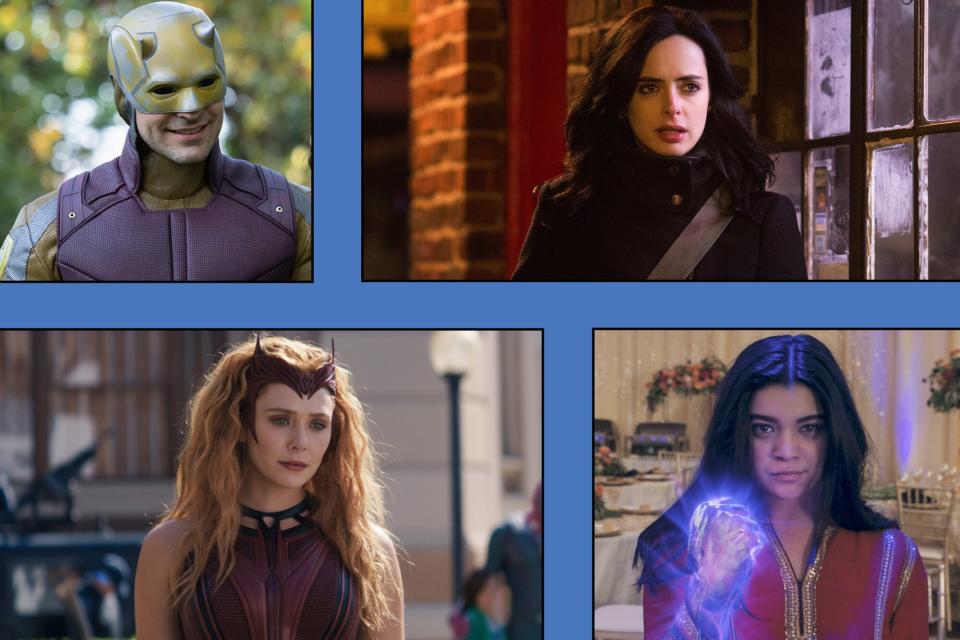
Chuck Zlotnick/Disney+; MYLES ARONOWITZ/NETFLIX; courtesy of Marvel Studios; courtesy of Marvel Studios Marvel TV shows, ranked
25. <em>Inhumans</em>
Inhumans never stood a chance. In 2017, the cast gathered at Comic-Con to reveal the first footage from the latest Marvel superhero show for ABC with Anson Mount's Black Bolt, Serinda Swan's Medusa, Iwan Rheon's Maximus, and more. The crowd was…well, let's just say, not that enthused by what they saw. Instead of the roar of excitement from thousands of fans that usually fills the convention space, the Hall H crowd was more like a murmur. Marvel Television should've listened. When the show finally aired later that year, it fizzled fast. These comic book heroes with their complex and visually dynamic roster of powers were already done dirty in getting ABC-level special effects. (Lockjaw on an Agents of S.H.I.E.L.D. budget isn't it.) But then it's also one of the only homophobic superhero shows in recent memory. That may sound dramatic, but what other word is there for something that took the fierce octo-hair of gay comic book icon Medusa and turned it into a CG hot mess before severing most of it off in the end? Gay geek Twitter was not having it. —Nick Romano
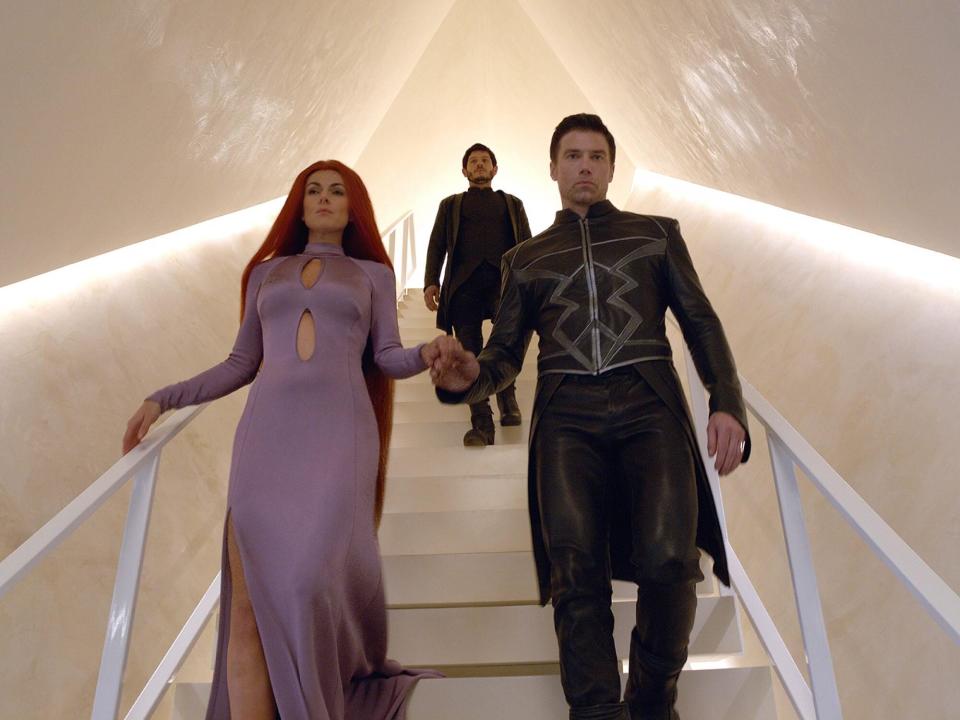
24. <em>Iron Fist</em>
Let's set aside, for a moment, some of the obvious things that were strange about Iron Fist — like the fact that Danny Rand (Finn Jones) was single-handedly the most annoying superhero of Marvel TV thus far, yet, for some reason, he was being made to be the predestined white savior of the world. Also, putting aside the controversial choice to center a story that was very much inspired by Asian cultures around a white guy. Bottom line, if you're going to have a martial-arts action show, you'd better make sure the martial-arts part looks cool. From Danny to Colleen (Jessica Henwick) to Bakuto (Ramón Rodríguez), you can see the actors actively thinking about every punch and kick to the point it was very clearly choreography. The illusion of television-making was broken, and the second season didn't do much to improve that. The two-minute-long trailer for Shang-Chi and the Legend of the Ten Rings was by far better than anything this show was able to pull off. Danny's only saving grace was the ability to pull off something so ridiculous and cool as "gun-fu" (i.e., channeling his mystical energy into his guns to make magic guns). —Nick Romano
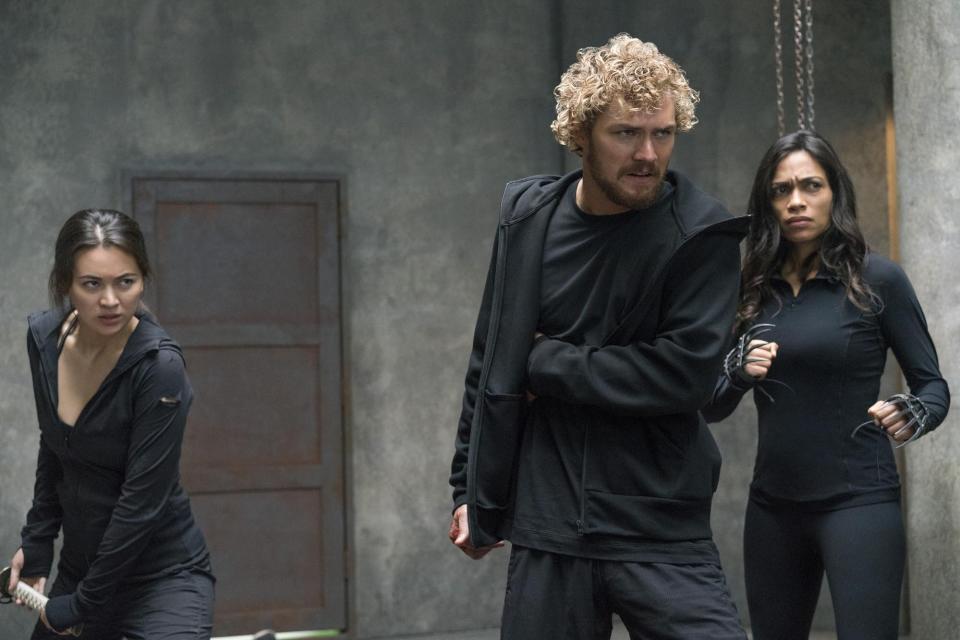
23. <em>Helstrom</em>
We should've known something was amiss when Helstrom suddenly lost the ownership signifier Marvel's that every other show carried. An adaptation of the Son of Satan comics, the Hulu drama was Marvel's first major foray into horror and centered on siblings Daimon (Tom Austen) and Ana Helstrom (Sydney Lemmon), who were grappling with their family's dark legacy. See, their father was a murderous demon and their mother, Victoria Helstrom (marvelously portrayed by Elizabeth Marvel) — truly the best and most chilling part of the show—was possessed by another demon. Unfortunately, the show's insistence on keeping things super dark and grounded in a gloomy aesthetic made its story about familial drama rather bland. Furthermore, knowing about the internal changes at Disney — Marvel TV was folded into Marvel Studios — made it hard to invest in the show because you knew it ultimately wasn't going anywhere. Thus, the Marvel TV era ended with a whimper. —Chancellor Agard
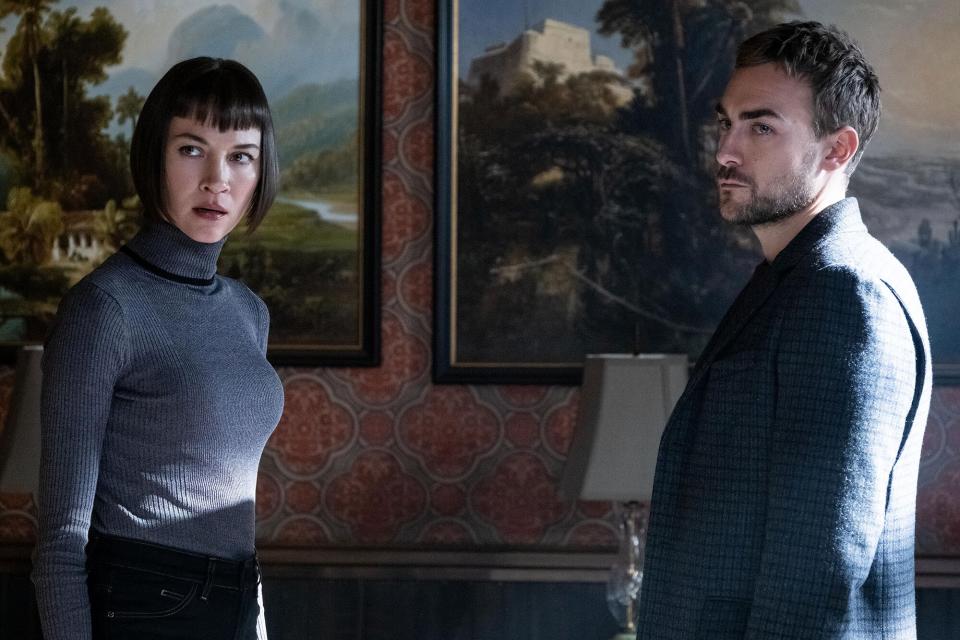
22. <em>The Defenders</em>
Every good superhero universe needs a team-up story, and in 2017, Netflix united three of its most charismatic heroes (and also Iron Fist) for a crossover miniseries. What should have been an explosive, Avengers-level event, instead, landed with a thud. At only eight episodes, this series is blessedly shorter than its Netflix counterparts, but it feels twice as long. It's hard not to look at the underwhelming Defenders and mourn what might have been: Charlie Cox, Krysten Ritter, and Mike Colter have a charming chemistry together (even Finn Jones comes off better here than in his own show), and tapping Sigourney Weaver as the series' icy adversary was a brilliant casting choice. But, mostly, this disappointing slog just left us wishing we were watching another solo season of Daredevil, Jessica Jones, or Luke Cage. (It's still better than Iron Fist, though.) —Devan Coggan
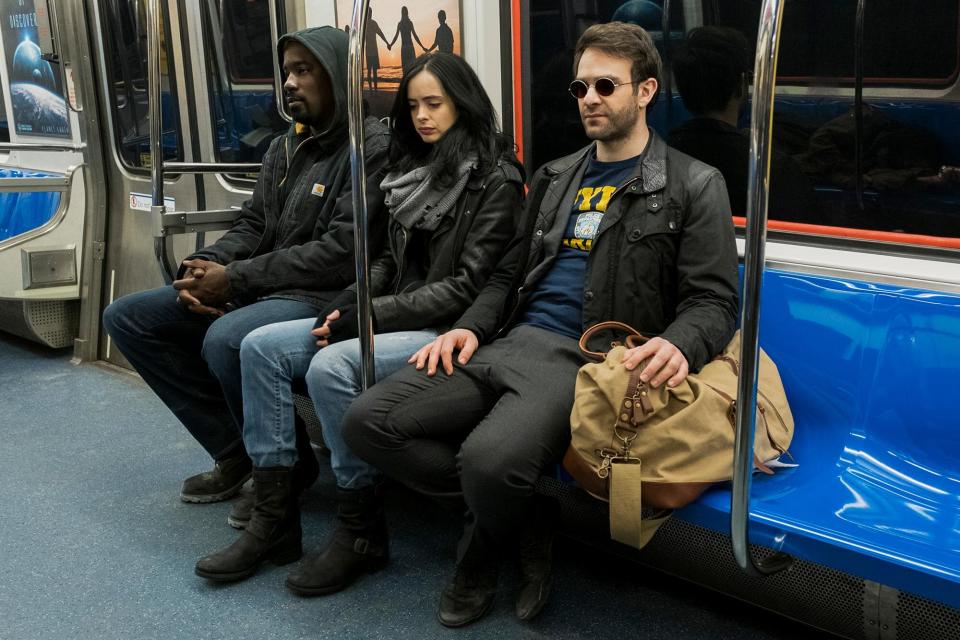
21. <em>Runaways</em>
Marvel's first teen show had the potential to be a much bigger hit than it turned out to be. A Marvel teen TV series helmed by teen TV experts Josh Schwartz and Stephanie Savage? Runaways should have been a cultural reset, which makes it all the more shocking to see how it actually fell flat when all three seasons— based on Brian K. Vaughan and Adrian Alphona's comic series — debuted on Hulu. Part of that could be blamed on how the show tried to give equal focus to the adults, when they were the villains of the story, rather than sticking to what worked best: the six teenage titular runaway heroes who were trying to defeat their supervillain parents. It also didn't help that it took a full season for the teens to actually run away and yet another season for them to become the fully actualized characters fans knew and loved from the comics. And just when Runaways was getting good in season 3 —That Cloak & Dagger crossover! Magic! Elizabeth Hurley as Morgan le Fay! — it was canceled. Classic case of too little, too late. —Sydney Bucksbaum
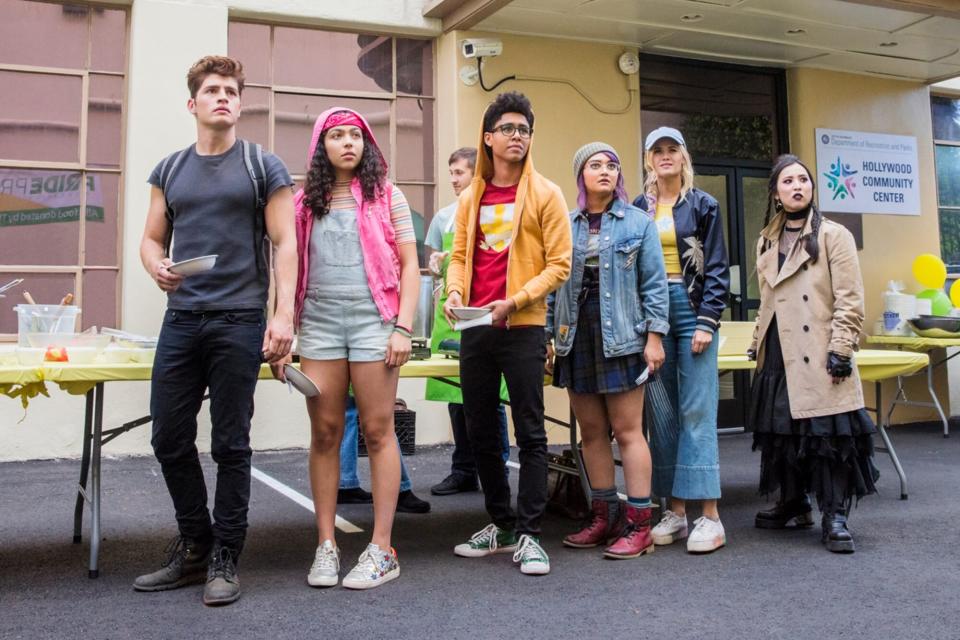
20. <em>Moon Knight</em>
Moon Knight should've been Oscar Isaac's Marvel redemption arc. As one of Hollywood's most beloved actors, Isaac is charm personified — charm that was wholly wasted in 2016's dismal X-Men: Apocalypse, (It should be a crime to cast someone as handsome as Isaac and then bury him under pounds of blue prosthetics, forcing him to grunt out lines like, "Leeeeaaaaarrrnnniiiinnng.") So when Isaac joined the MCU with Moon Knight, his casting was met with near-universal relief. Here was one of our strangest, most fascinating actors, tackling one of comics' strangest, most fascinating antiheroes. But when Moon Knight finally landed on Disney+, the actual series was… meh. Isaac brings an oddball appeal to the hero, playing both American mercenary Marc Spector and mild-mannered Brit Steven Grant as they share the same body. But the show itself is muddled by unclear stakes and messy mythology. Sure, there are interesting moments sprinkled throughout: Ethan Hawke is an imposing villain with his glass-filled shoes, and the show is refreshingly separate from the wider MCU, skipping the usual winking references or shoehorned cameos. But Moon Knight is awkwardly plotted, unsure whether it wants to be a psychological drama, a buddy comedy, an action extravaganza, or a supernatural horror story. If the show returns for a second season, here's hoping the next phase shines a little brighter. —Devan Coggan
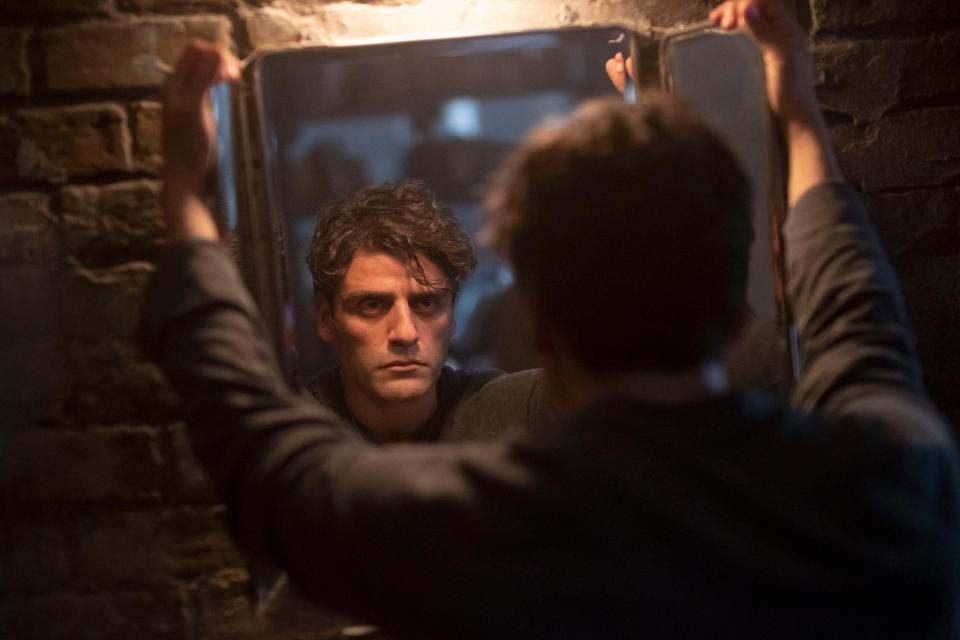
19. <em>Secret Invasion</em>
Secret Invasion should have been one of Marvel's best shows in the Disney+ era. After Nick Fury kicked off the entire MCU with 2008's Iron Man, he finally got his own show 15 years later, with an all-star cast including Cobie Smulders, Ben Mendelsohn, and Don Cheadle — plus newcomers like Game of Thrones alum Emilia Clarke, One Night in Miami star Kingsley Ben-Adir, and Oscar winner Olivia Colman. The buildup to this espionage thriller amped up for years, ever since the twist in Captain Marvel revealed that the shape-shifting alien Skrulls are actually refugees, victims of the Kree's genocide — a massive diversion from the comic source material. But when Secret Invasion finally premiered, it failed to live up to its potential. Sure, Samuel L. Jackson delivered his best MCU performance by far as Fury struggled with the fallout from the Blip and faced his own mortality, but that's not enough to carry an entire series. After an impressive first two episodes, Secret Invasion lost momentum, and never accurately portrayed the size and scope of the Skrull threat. Its lackluster finale relied too much on a CG-filled fistfight and boring standoff in a hospital hallway. The most compelling parts of the story either happened off screen or in an extremely jarring and gory montage in the final moments, revealing how the events of the season sparked a sharp increase in homegrown terrorism targeting Skrulls and innocent humans alike. This series was supposed to be director Ali Selim's exploration of modern terrorism, but it missed the mark on all fronts. And how are we supposed to take any problem in the MCU seriously moving forward, knowing that Clarke's Super-Skrull hero G'iah now has the powers of every single Avenger, and yet we'll likely never see her on screen again? —Sydney Bucksbaum
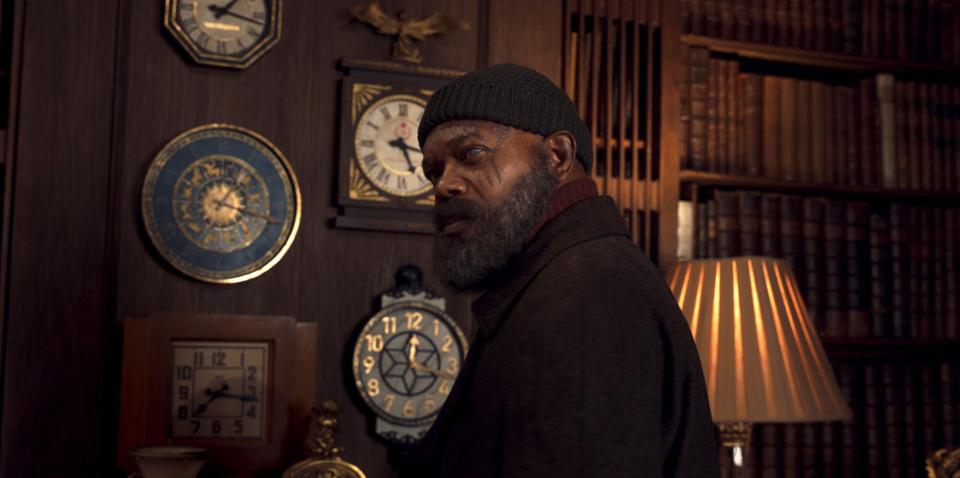
18. <em>The Falcon and the Winter Soldier</em>
The Falcon and the Winter Soldier, Disney+'s second Marvel TV show, had several great elements. Anthony Mackie and Sebastian Stan — who play the show's titular duo — have crackling chemistry, and it's easy to understand why the studio decided to build a show around them. Sam and his family's financial struggles in Louisiana is the type of relatable storytelling you don't often see in the MCU or superhero stories in general. And, finally, Sam's learning of and then grappling with the heart-wrenching legacy of Isaiah Bradley (Carl Lumbly), a Black American super-soldier who was rewarded for his service with imprisonment and torturous experimentation, as he pondered whether or not to pick up the mantle of Captain America. Unfortunately, all of these got lost in the show's frustrating "six-hour movie" approach, which created pacing issues; shallow world-building that failed to make the effects of the Blip feel immediate; and weird tonal choices, especially when it came to John Walker (Wyatt Russell) because it felt like the writers, director, and Russell had wildly different interpretations of how we should feel about him. But, hey, at least we got Julia Louis-Dreyfus in the MCU and Zemo dancing, right? —Chancellor Agard
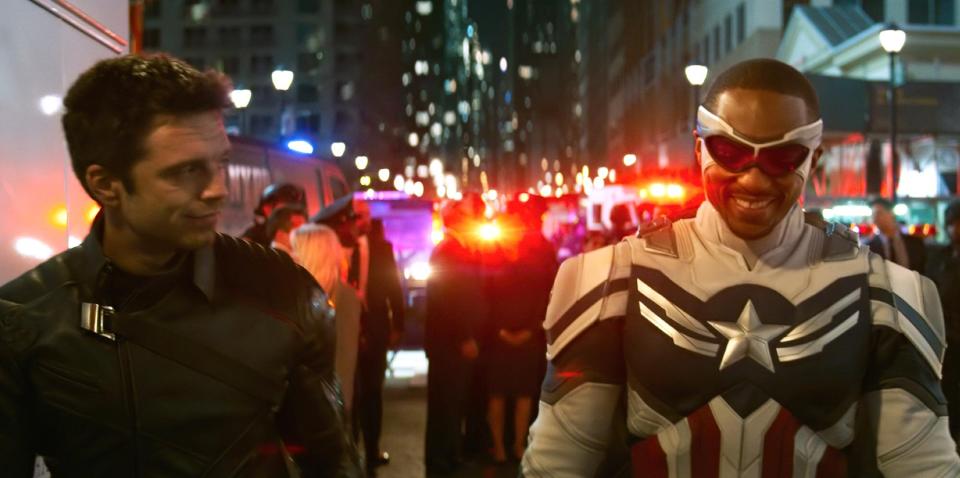
17. <em>What If...?</em>
The MCU's first animated series took a big swing — and it mostly paid off. Marvel's What If…? was basically a creative brainstorming exercise made for fans by fans, and it was intended to have fun with and take chances within a universe that, until now, followed a strictly enforced narrative arc. The title of the series is the literal question at the heart of the show, as each episode reimagined iconic moments from the MCU with most of the movie actors reprising their roles in voiceover (aside from a few obvious swaps). The animation was beautiful, and the stories were unpredictable. There were powerful highs, like Chadwick Boseman's T'Challa/Black Panther making his final MCU appearance in a few episodes, most significantly in episode 2's emotionally cathartic heist adventure. But there were also frustrating lows, like how it took the entire season for all the seemingly-separate universes to finally converge in one Avengers-like team-up story. But overall, What If…? did exactly what it set out to do by delivering wildly different versions of beloved characters — and some, like Captain Carter (Hayley Atwell), turned out to be even better than their live-action counterparts. There were no limits to where What If…? could go, and hopefully season 2 pushes that missive even further. —Sydney Bucksbaum
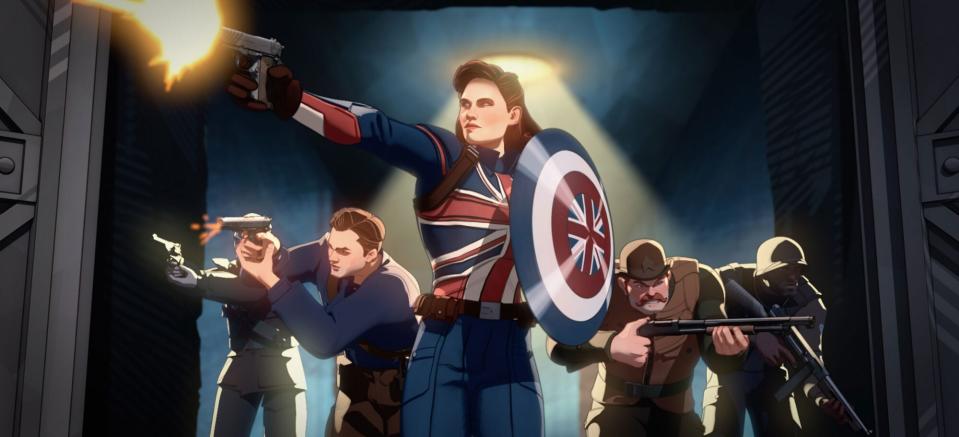
16. <em>The Punisher</em>
It's not what you think. Now that the Punisher and his skull symbol have been co-opted by cops and soldiers across the United States, it's important to emphasize that the Netflix series starring Jon Bernthal as Frank Castle is not at all a celebration of fascist violence. In fact, "soldiers who think they can get away with anything" are the villains in this version of The Punisher. Here, Frank wreaks his unholy vengeance against U.S. generals and Blackwater-type mercenaries, not just because of the damage they've done to him personally, but also because of all the innocent families in Afghanistan and Iraq whom he killed on their orders. Season 1, in particular, cast a hard light on all the ways America discards and abandons its veterans, but season 2 stumbled a bit from its reluctance to muck up Ben Barnes' pretty face — even though that was presumably the whole point of casting him as Jigsaw. —Christian Holub
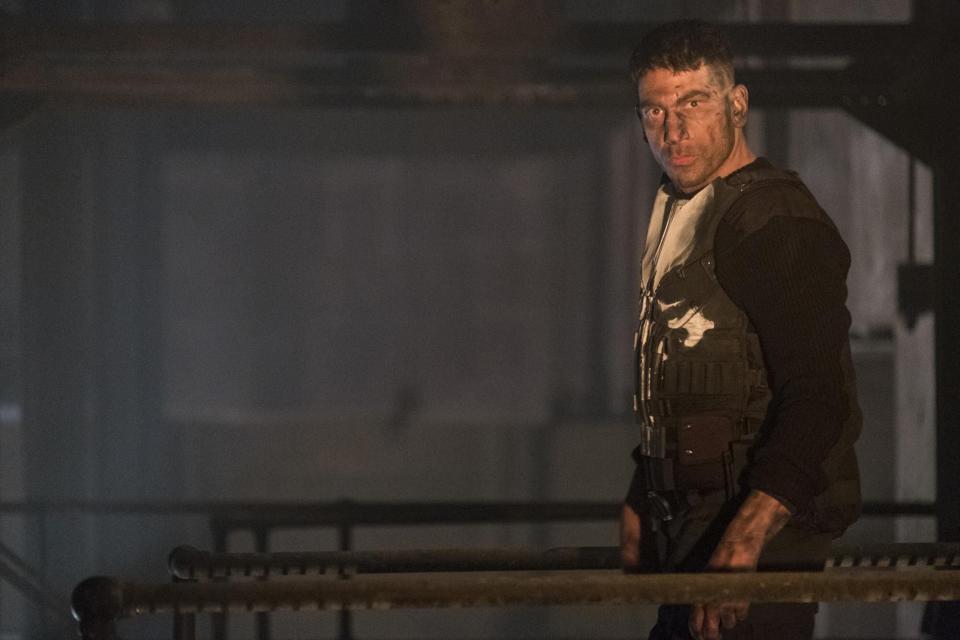
15. <em>The Guardians of the Galaxy Holiday Special</em>
Like Werewolf by Night before it, this Yuletide adventure is just a one-off, making it difficult to decide where it fits on this list. Compared to full TV series with hundreds of hours, it's basically apples to oranges. But this delightful and festive special from writer-director James Gunn is a feel-good adventure from start to finish. The perfectly concise 44-minute episode follows Drax (Dave Bautista) and Mantis (Pom Klementieff) as they search for the perfect Christmas gift for Peter Quill/Star-Lord (Chris Pratt) — and end up kidnapping Kevin Bacon (played to wonderfully meta comedic highs by the actor himself). It's the MCU's shortest and lowest-stakes story yet, starring two weirdo side characters, but it also uncovers new layers to formerly two-dimensional heroes. It's got heart, jokes, and wonderfully wacky original music — what more could you want from the MCU's first holiday special? —Sydney Bucksbaum

14. <em>Agents of S.H.I.E.L.D.</em>
What a good fighter this show was. Though Agents of S.H.I.E.L.D. started as the MCU's first attempt to branch out onto TV, that promise of interconnectivity didn't feel very impactful after the first couple of seasons (if we're being honest, it was basically made irrelevant as soon as the end of season 1, when Captain America: The Winter Soldier ended S.H.I.E.L.D. as we knew it). Nevertheless, Agents of S.H.I.E.L.D. soldiered on for a staggering seven seasons due to its lovable cast — almost none of whom were based on pre-existing Marvel comics characters, though some have since made the jump over alongside Clark Gregg's Phil Coulson — and willingness to play in all corners of the Marvel Universe. One season found the team fomenting revolution on a far-future space station, while another saw them dealing simultaneously with a supersmart android and the cursed spellbook called the Darkhold (whose appearance on WandaVision felt like the final confirmation that Agents of S.H.I.E.L.D. meant little to MCU continuity). The movie tie-ins may have faded over time, but watching secret agents maneuver through a superhero world never got old. —Christian Holub
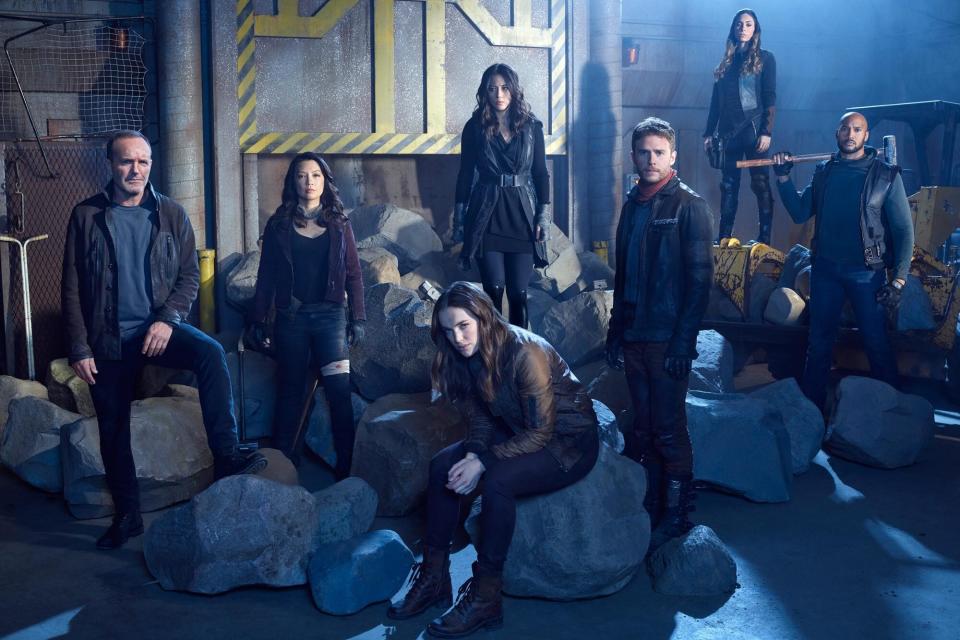
13. <em>Werewolf by Night</em>
For those keeping track, this 50-minute-and-change Marvel "TV special" significantly opens up the scarier side of superheroes. A group of veteran monster hunters gather at the mysterious Bloodstone Manor to compete in a monster-hunting challenge, all jockeying to succeed their late leader. But even if none of those seeds bear any fruit for the canon, it's still a delightful ode to classic monster movies done largely in black and white, complete with over-the-top thunder cracks worthy of Young Frankenstein and an actual creature from a black lagoon. It's also a semi-whodunnit with Knives Out-level kooky characters (who's the werewolf among them?), while still being PG-13 (well, TV-14). For all the heat the movies get for relying too heavily on the standard Marvel template, this tight, hourlong adventure tore that to shreds. Remember those Marvel "one-shots" that came with the DVD release? This is the meatier successor. Let this be the start of more standalone offshoots that go for the unexpected. —Nick Romano
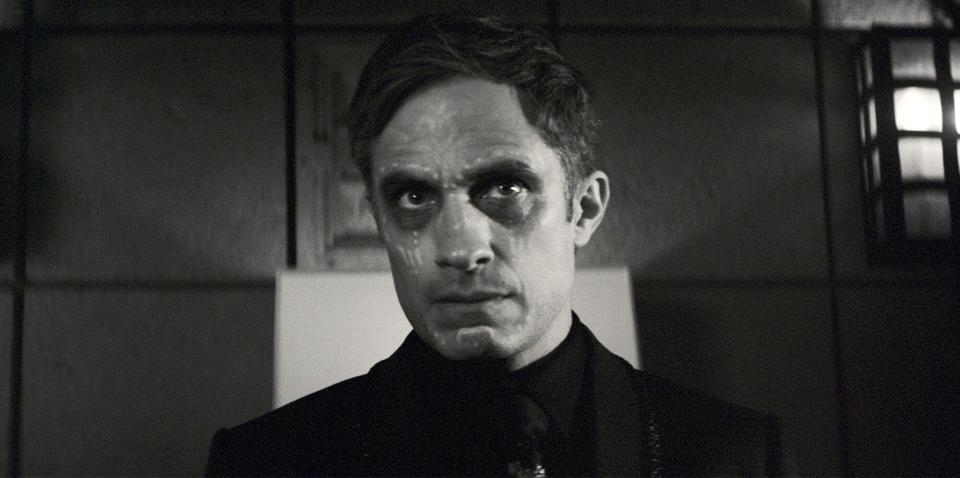
12. <em>Luke Cage</em>
After first popping up on Jessica Jones, the Hero of Harlem took the spotlight with his own Netflix series beginning in 2016. Some of the show's story arcs worked better than others, but looking back on this two-season saga, what sets it apart are the nuanced, memorable performances — including Mahershala Ali as Cottonmouth, Simone Missick as Misty Knight, and, of course, Mike Colter as the titular strongman. There's a rich, lived-in feeling to the show's vision of Harlem — and an undeniable power in how the show approaches a story about a bulletproof Black man. Colter plays Cage with a warm, weary strength, and the result is a show that didn't always know what kind of story it wanted to tell — but always left an impression. —Devan Coggan
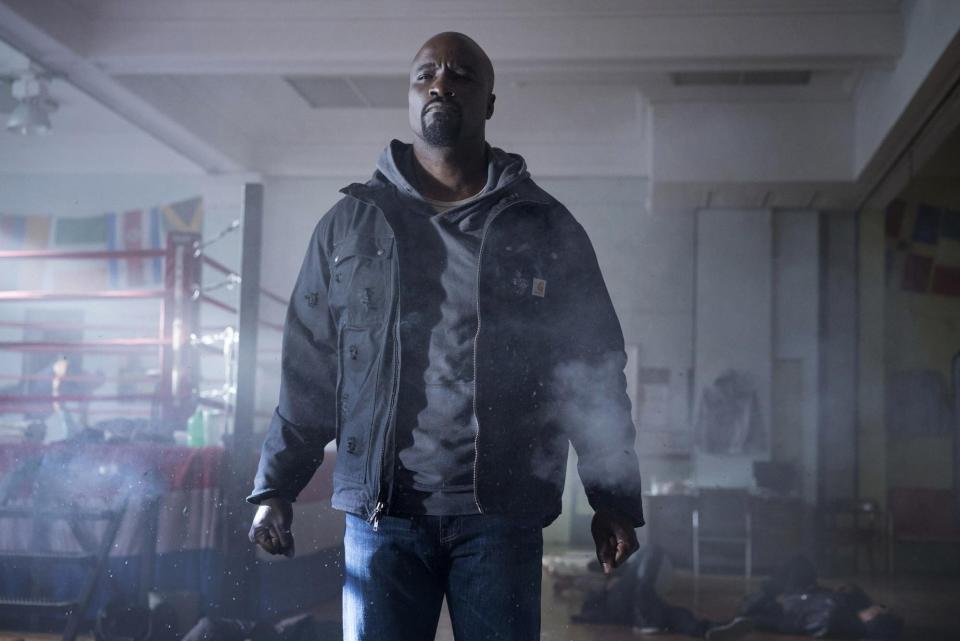
11. <em>Cloak & Dagger</em>
Where Hulu's Runaways stumbled, Freeform's Cloak & Dagger soared. The second Marvel teen series was a master class in balancing young adult drama, comic book eccentricity, and tragic trauma all into one gorgeous, heartbreaking, and reliably compelling show. Olivia Holt and Aubrey Joseph starred for two seasons as Tandy and Tyrone, two halves of one powerful superhero duo, in what serves as their origin story in New Orleans as they come to terms with their haunting pasts and promising futures. The Freeform series was as dark as a Marvel show can get, deftly weaving in raw, important, and authentic stories about police officers shooting unarmed Black men, human trafficking, drug addiction, and much more. There was so much to love about the two short seasons of Cloak & Dagger (canceled too soon!), but the sweet, blossoming relationship and winning partnership between Tandy and Tyrone was the real prize. —Sydney Bucksbaum
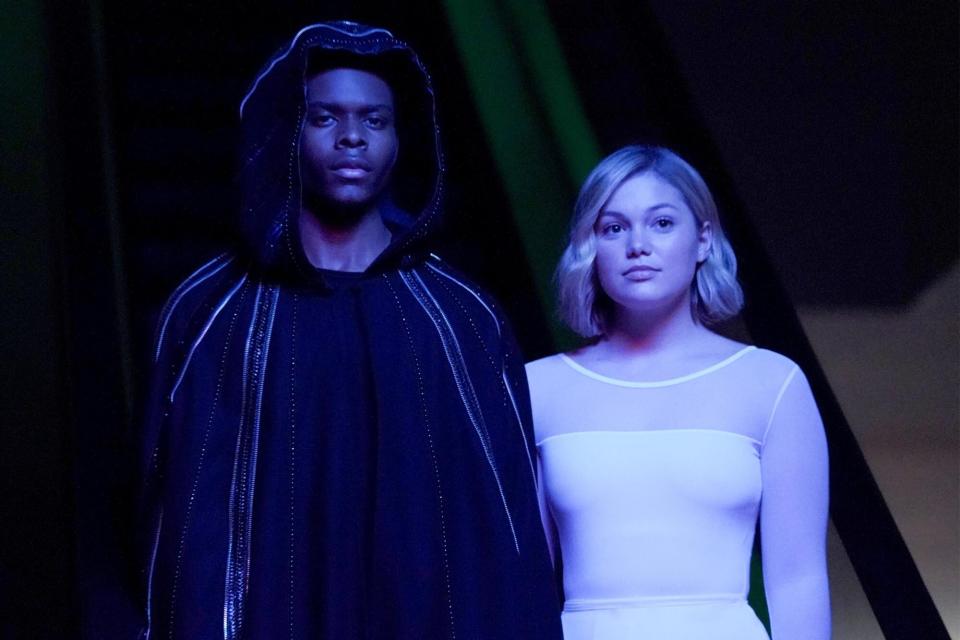
10. <em>The Gifted</em>
Much like Superman, the X-Men are big-name superheroes who actually work a lot better as a TV show than they do as singular movies. The saga of Marvel's mutants, where pitched battles occur against an ongoing narrative backdrop of ever-increasing oppression and survival, was basically built for long-form storytelling. Plus, the ensemble cast allows for spotlights on a wider range of characters than a movie — and in the world of the X-Men, every single character has something interesting to say or a cool power to show off. The Gifted managed to be loyal to the spirit of the comic-book X-Men (the three Stepford Cuckoos, all played by Skyler Samuels, served up enough telepathic sass to make up for the two failed movie attempts at adapting Emma Frost) while also rooting itself in the realities of the Trump era. Here, the mutant-hunting Sentinels weren't depicted as giant robots, but rather as terrifyingly human ICE agents. We may never know what became of Eclipse (Sean Teale), John Proudstar (Blair Redford), and the rest of the Mutant Underground after they went into that portal at the end of season 2... but here's hoping they eventually found their way to Krakoa. —Christian Holub
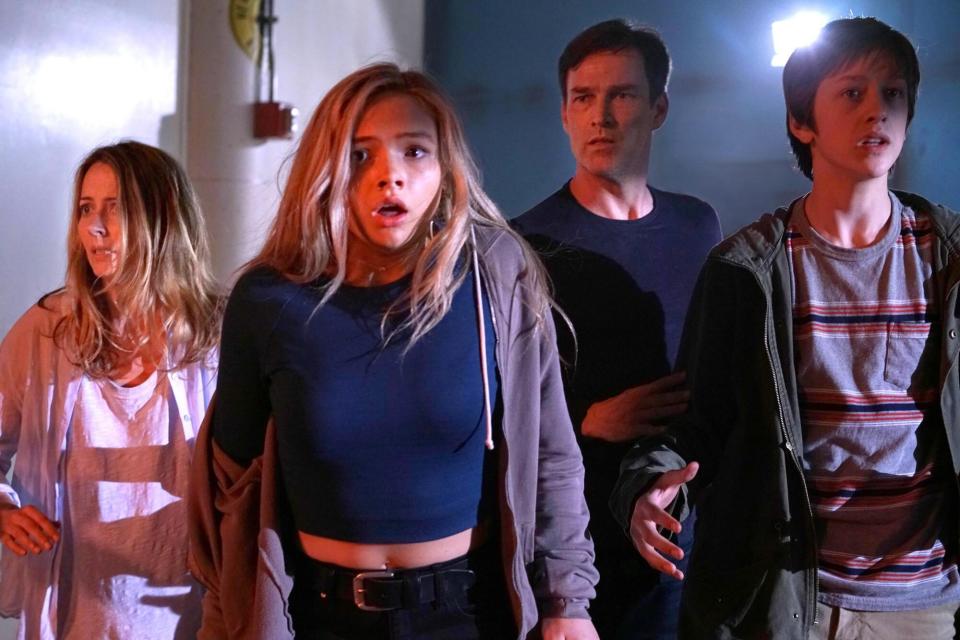
9. <em>She-Hulk: Attorney at Law</em>
She's mean, she's green, and she's a total delight. Tatiana Maslany made her verdant debut as lawyer-slash-vigilante Jennifer Walters, inheriting her Hulk powers from cousin Bruce Banner (Mark Ruffalo). In an era of "eight-hour movies" and bloated episode runtimes, She-Hulk reveled in a sort of throwback charm, a tight, 30-minute legal comedy with a new case each week. Maslany is endlessly engaging as both human and Hulk, and the show particularly crackles in the back half — especially as Jen gets to flirt with everyone's other favorite superhero lawyer, Matt Murdock/Daredevil (Charlie Cox, reprising his role from the much grittier Netflix series). Plus, this is the show that introduced us to Madisynn. All hail Madisynn. —Devan Coggan
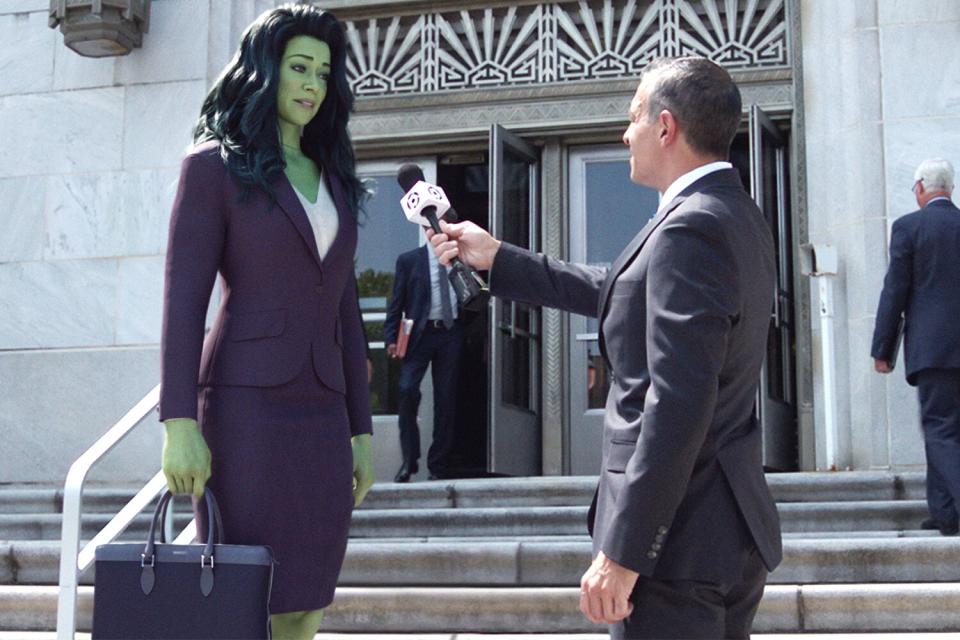
8. <em>Daredevil</em>
A direct contrast to Iron Fist, questioning how these two entities could exist in the same universe, under the same Marvel TV umbrella, Daredevil did not shatter the fantasy of hard-hitting, blood-smearing action. From the hallway tracking shot that made everyone want to do tracking shots (we see you, Agents of S.H.I.E.L.D.) to the gnarly office space battle against Bullseye (Wilson Bethel), the Charlie Cox-fronted series didn't pull its punches. It took the concept of a blind hero who sees through sound and utilized it creatively. Daredevil did suffer from Marvel's classic problem from that era, something that was passed on in a lesser dose to The Falcon and the Winter Soldier — it draaaaaagged — but the series offered some of the more compelling pieces of storytelling of the Defenders bunch and one of the most interesting, complex heroes. And with a complex hero came a complex villain. (Vincent D'Onofrio has come to define the role of Wilson Fisk with his imposing, ever-evolving performance. The character is his now. We don't make the rules.) If it weren't for the season 2 doldrums, it likely would've been even higher on this list. —Nick Romano
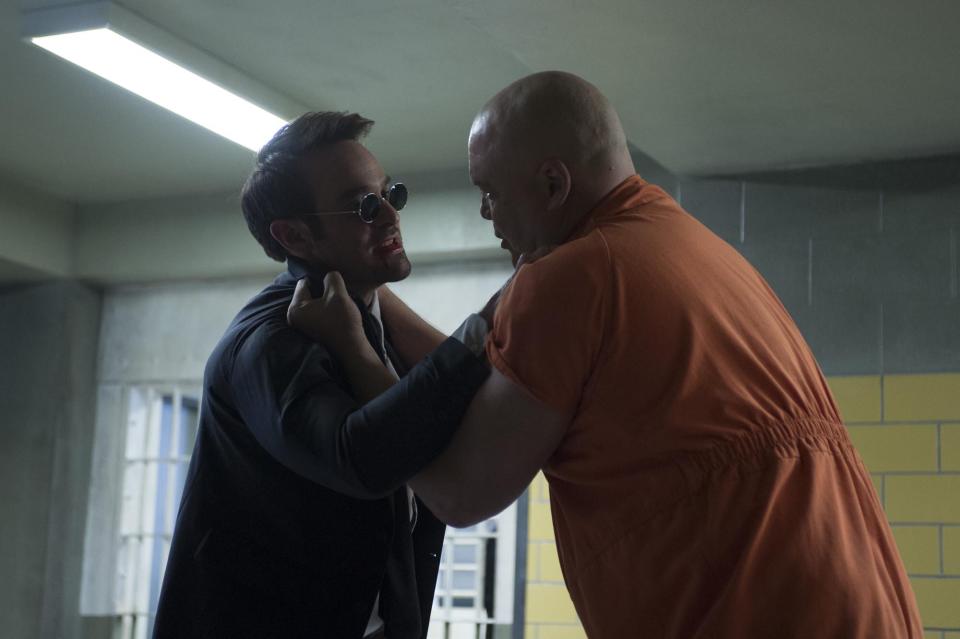
7. <em>Loki</em>
Tom Hiddleston's Loki was the first good villain produced by the Marvel Cinematic Universe, which in its early films mostly just pit the heroes against dark mirror images of themselves. This low standard made Loki a fan favorite as early as The Avengers — and it's this Loki, pulled from his normal place in the timestream, that stars in the eponymous Disney+ series. Therefore, Loki is simultaneously a return to the trickster god's villainous roots and an expansion of his horizons. It's fun to see Hiddleston bounce off new friends (Owen Wilson's Mobius M. Mobius, Sophia Di Martino's Sylvie) and face down a new enemy (Jonathan Majors' He Who Remains). But even more than the Doctor Who-style romps through time and space, the true joy of Loki was seeing the antihero protagonist meet other incarnations of himself. We know now that Loki is a flexible concept: He could be a kid, a president, an alligator, or even Richard E. Grant. We can't wait to see what new surprises are in store for season 2. —Christian Holub
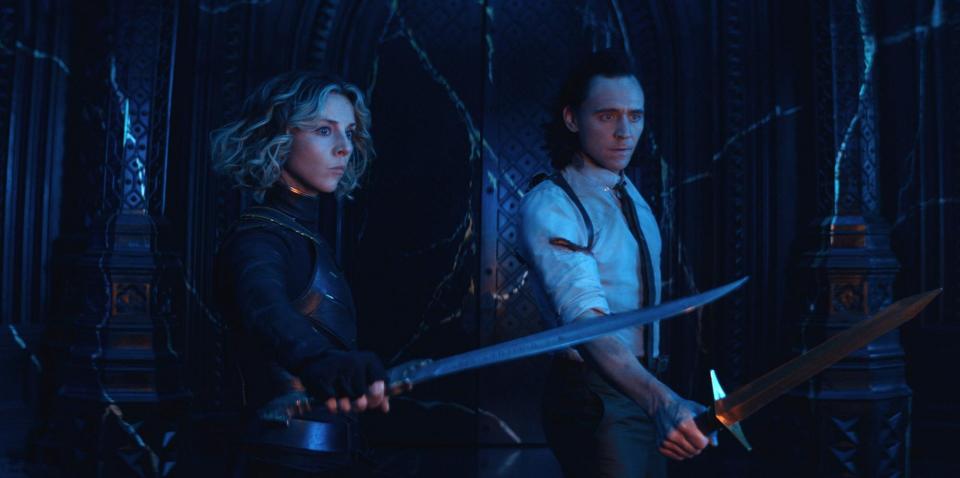
6. <em>Agent Carter</em>
The Marvel Cinematic Universe has never been more fun — or more stylish. Set after World War II (and Captain America's untimely icing), this bubbly ABC adventure centers on Hayley Atwell's Peggy Carter as she tries to navigate post-war tensions, Russian sleeper agents, and sexist colleagues. The entire show crackles with energy, from the slick 1940s fashion to the eclectic supporting characters. (James D'Arcy's stoic Jarvis and Dominic Cooper's philandering Howard Stark are particular highlights.) But the spotlight belongs to Atwell, who imbues Peggy with resourcefulness and steely determination — a warm but battle-proven soldier in red lipstick. —Devan Coggan
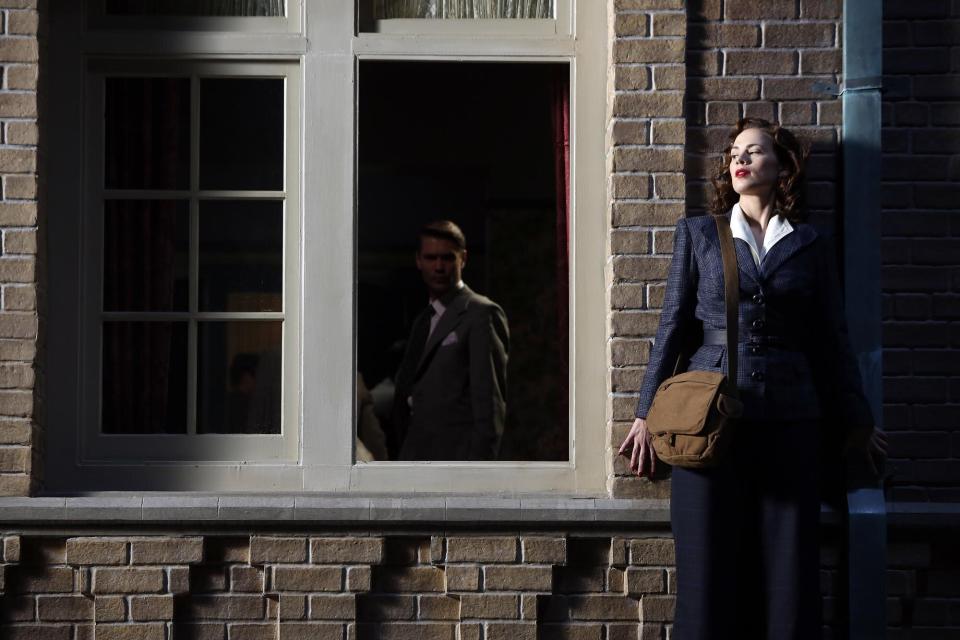
5. <em>Ms. Marvel</em>
Marvel fans have been waiting to see Kamala Khan on screen for years now, and Iman Vellani's portrayal did not disappoint. Though she was only created in 2014, Kamala is the most beloved 21st century addition to the Marvel superhero pantheon, and is now the definitive Ms. Marvel in the eyes of many. (It helps that her predecessor Carol Danvers has in turn become the definitive version of Captain Marvel.) Vellani captured Kamala's relatable charm and aspirational heroism, as well as her identity as a Muslim American superhero. In fact, the Ms. Marvel series dove even more into her family history in Pakistan than the comics have — though as a result of the six-episode length, that meant viewers didn't get to spend a ton of time with Kamala's vibrant Jersey City supporting cast. Now that Kamala's getting jettisoned off to The Marvels and then whatever the MCU might have planned for the mutants, it's hard to tell when she'll reunite with Bruno (Matt Lintz) or Nakia (Yasmeen Fletcher). But this icon is definitely here to stay in the MCU. —Christian Holub
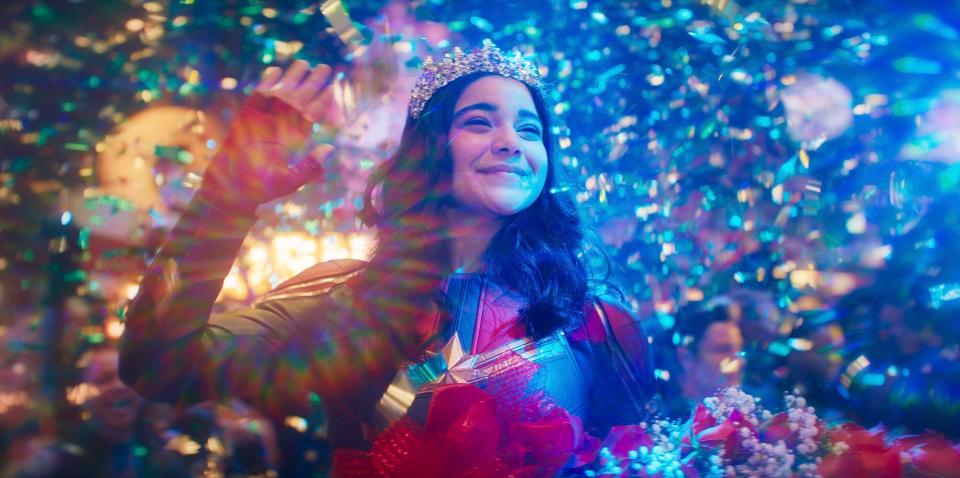
4. <em>Hawkeye</em>
Jeremy Renner's bow-slinging hero was the last of the original six Avengers to get a solo project — and what a delight that solo project turned out to be. On the big screen, Clint Barton sometimes fell flat, especially when standing next to more impressive co-workers like the wise-cracking billionaire playboy or the hammer-wielding god from outer space. But Clint shines in his own Disney+ show, a zippy, New York-set saga that's inspired by Matt Fraction and David Aja's iconic Hawkeye comic series. At a tight six episodes, this Christmas story never outstays its welcome, and there's so much to love here: Alaqua Cox as the grim and determined Maya Lopez/Echo! Lucky the Pizza Dog! Florence Pugh shoveling down boxed mac 'n cheese! (Also, isn't it fun when Marvel sets an action sequence during daylight hours, so we can actually see all the cool stuff that's happening?) But even among all the playful stunts and Christmas cheer, the show's true heart is Hailee Steinfeld as Kate Bishop, the unshakeable protégée who follows in Hawkeye's footsteps — and maybe teaches him a few things about heroism, too. Together, Renner and Steinfeld have a crackling odd-couple chemistry, making Hawkeye one of Disney+'s most delightful shows yet. —Devan Coggan
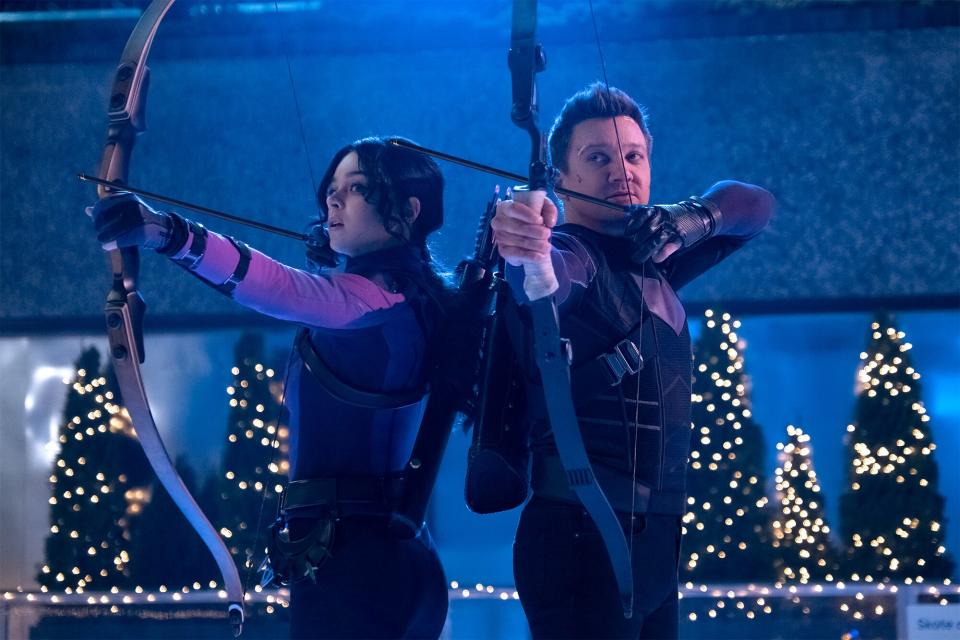
3. <em>Jessica Jones</em>
Jessica Jones was by far the most consistent of the Marvel-Netflix shows. Yes, it encountered the same pacing problems as the other titles, but even in those rough patches, you also trusted the stars and creative team never lost sight of the season's thematic North star — whether it was season 1's exploration of trauma, sexual assault, and misogyny; season 2's deep dive into anger; or season 3's look at the responsibility and limits of power. A huge part of the show's success lies with Krysten Ritter, who was perfectly cast as the sarcastic, guarded, and super-powered private investigator who didn't even know if she was or wanted to be a hero. Of course, you can't talk about Jessica Jones without bringing up David Tennant's unsettling yet phenomenal performance as Kilgrave, who remains one of Marvel's best onscreen villains ever. Of all the series in the Jeph Loeb era of Marvel TV, this is the one that shouldn't be forgotten, and definitely deserves some sort of place in the main MCU. —Chancellor Agard
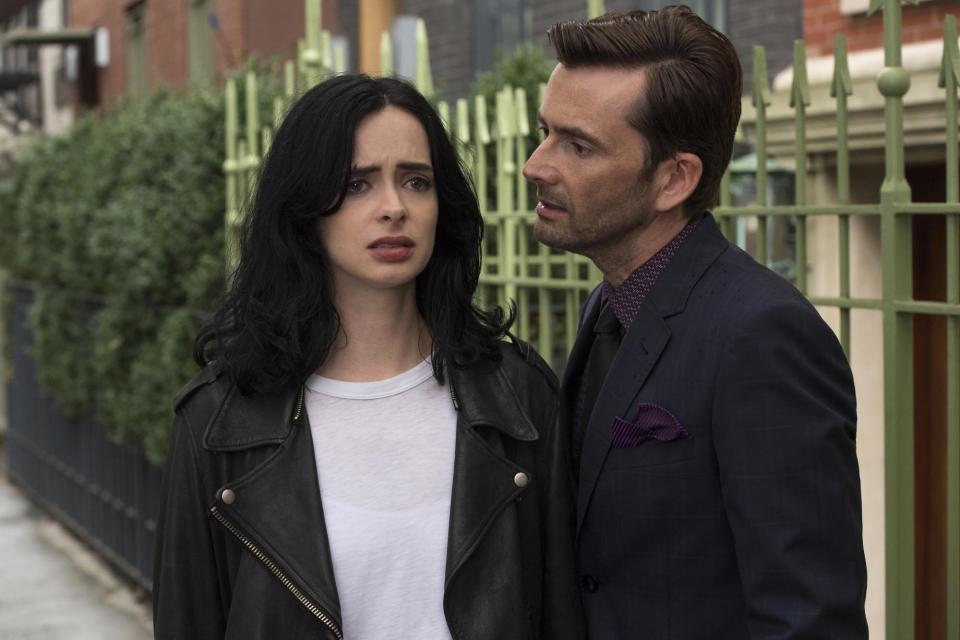
2. <em>Legion</em>
If The Gifted represents one approach to an X-Men TV show (with its wide, diverse cast of mutants fighting for causes bigger than themselves) then Legion, starring Dan Stevens, represents the other: hyper-focusing on a singular character with an incredibly powerful mutation that transforms their life in unique ways. Telepathy is a notoriously difficult power to depict visually — anyone who's seen Dark Phoenix can probably recall the torturously long scenes of Michael Fassbender and Sophie Turner staring at each other, squinting and grunting, as they just think really hard. But by dedicating its whole aesthetic to the exploration of mental powers, Legion came up with riotously entertaining scenes. Telepathic battles were here depicted as dance-offs or cartoonish wrestling; rapid switches between genres and timeframes channeled what it would feel like to be constantly overwhelmed by the thoughts of others. Though we can't say that every single creative decision necessarily paid off, Legion's ambitious unpredictability set itself apart from other Marvel TV series. Showrunner Noah Hawley's auteurist approach to superhero storytelling — unburdened by any other continuity — is something we may not see again in this new age of Disney+ shows that replace showrunners with head writers and directors all working under the corporate aegis of the MCU. —Christian Holub
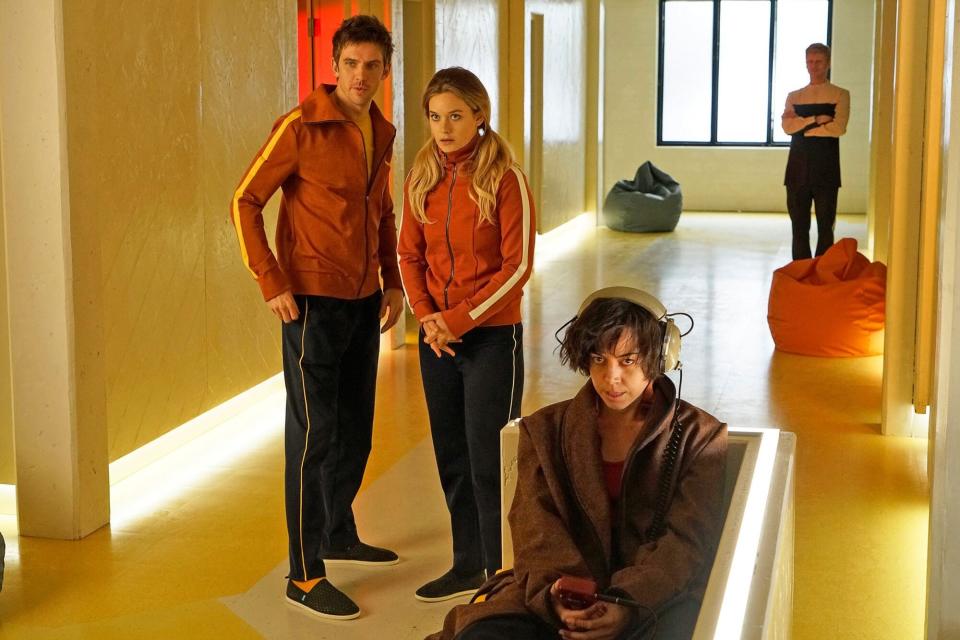
1. <em>WandaVision</em>
The beginning of the Disney+ era marked a new beginning for all of Marvel TV, because WandaVision broke the mold of what a comic book show could — and should — be. Highly stylized, high-concept episodes taking fans through all the decades of iconic sitcoms with a shocking level of attention to detail, combined with an overall plot that had more to do with a superhero coming to terms with her own grief rather than battling yet another world-ending event (with the added bonus of one of the most gut-wrenching romantic storylines we've seen yet in all of the Marvel Cinematic Universe)? That's already a recipe for success. But wait, there's more! WandaVision was also downright hilarious, took more risks than ever before, dared to get weird, and didn't hold back when it came to finally tying Marvel shows into the MCU and vice versa (which is how it always should have been). Elizabeth Olsen's devastating, at times chilling performance took all the mismatched, continuity head-scratching parts of Wanda Maximoff from the MCU films and created one of the most human superheroes ever seen on screen (big or small). Paul Bettany destroyed us with Vision's every line (and don't get us started on that final one). Plus, WandaVision gave us "Agatha All Along," which is reason enough to earn this No. 1 spot. Bless you, Kathryn Hahn. —Sydney Bucksbaum
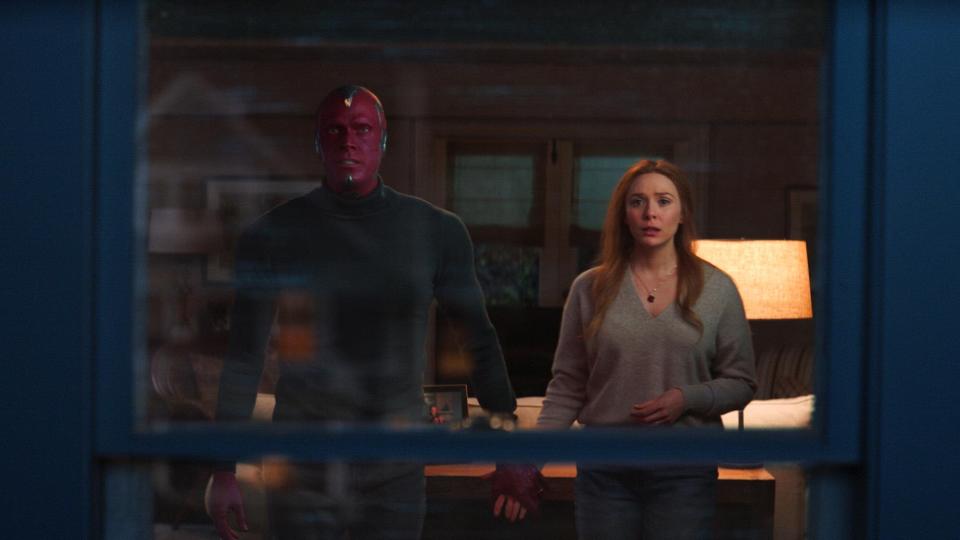
Related content:

